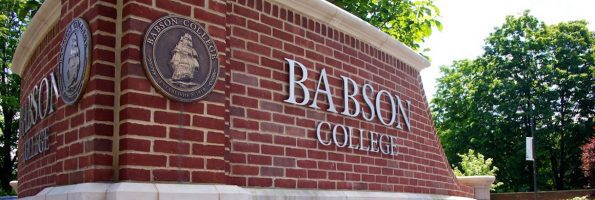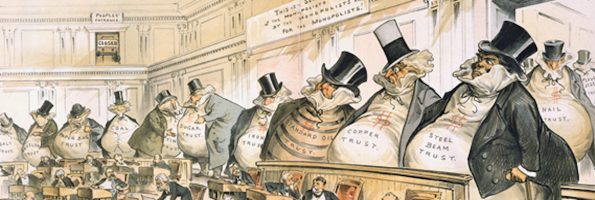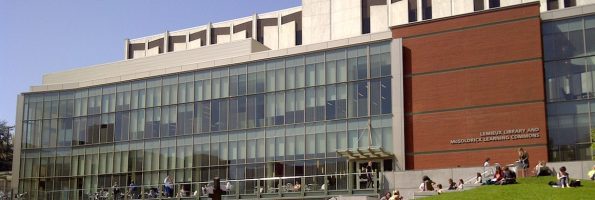MIT Examines the Appeal of Lying, and More – Boston News

Let’s explore some of the most interesting stories that have emerged from Boston business schools this week.
When the ‘Lying Demagogue’ is the Authentic Candidate – MIT Sloan Newsroom
One of the major questions in the post-Trump U.S. public discourse is how voters could possibly support a political figure that so brazenly bends the truth at every possible turn. In a new paper published in February’s American Sociological Review, MIT Sloan School of Management professor and deputy dean Ezra Zuckerman Sivan attempts to rationalize the appeal of a lying demagogue:
“When a candidate asserts an obvious untruth especially as part of a general attack on establishment norms, his anti-establishment listeners will pick up on his underlying message that the establishment is illegitimate and, therefore, that candidate will have an ‘authentic’ appeal despite the falsehoods and norm-breaking.”
Read more about Zuckerman Sivan’s research here.
What Most People Get Wrong About Men and Women – Harvard Business Review
The ongoing pay gap dialogue has inspired both men and women to step up and pressure the organizations that employ them to commit more aggressively to gender parity. In a recent Harvard Business Review article, HBS researchers Catherine H. Tinsley and Robin J. Ely explore the harmful rhetoric that drives many of these well-meaning initiatives and offer a four-step alternative approach for people to:
1) Question the narrative
2) Generate a plausible alternative explanation
3) Change the context and assess the results
4) Promote continual learning.
“The solution to women’s lagged advancement is not to fix women or their managers but to fix the conditions that undermine women and reinforce gender stereotypes. By taking an inquisitive, evidence-based approach to understanding behavior, companies can not only address gender disparities but also cultivate a learning orientation and a culture that gives all employees the opportunity to reach their full potential.”

“When people are less embedded, they are also less aware of opportunities for stretch assignments and promotions, and their supervisors may be in the dark about their ambitions. But when women fail to “lean in” and seek growth opportunities, it is easy to assume that they lack the confidence to do so—not that they lack pertinent information.” – Catherine H. Tinsley and Robin J. Ely
You can check out the full article here.
Unity in Diversity: The Babson Latin American Forum – Babson Blog
The Babson College F.W. Olin Graduate School of Business recently hosted its Latin American Forum, which featured esteemed guest speaker and Open English founder Andres Moreno, whose online platform teaches English, and Santa Teresa rum CEO Alberto Vollmer.
Moreno and Vollmer both used their lectures as an opportunity to examine how entrepreneurship can co-exist with social impact. Vollmer discussed the Alcatraz Rugby Project, a recognized program of social reintegration for young people with behavioral problems. Moreno chose to focus on how his delivers the best product and service to its consumers.
You read a more in-depth survey of the Babson Latin American Forum here.
Columbia Research Illuminates Unconscious Cause of Fake News

Fake news, the most oft-repeated phrase of 2017, doesn’t just rise out of some malevolent direction. According to Columbia Business School, there are many social factors hidden in the process.
Fake news has become an epidemic of sorts, as the recent investigation into how Russia used divisive Facebook posts to possibly influence the presidential election demonstrates, planted stories can have a “powerful and multiplying effect” due to their circulation on social media. Reportedly, fake news possibly impacted elections France and Kenya, as well.
Gita Johar, the Meyer Feldberg Professor of Business at Columbia Business School, along with doctoral students Youjung Jun and Rachel Meng, published research entitled Perceived Social Presence Reduces Fact-Checking in which they discovered that people are less likely to investigate the veracity of ambiguous claims when they are “consumed in a group setting” and when that information “aligns with their own party affiliation.”
According to the article, Johar, Jun, and Meng “conducted eight experiments to evaluate how the presence of others affects the way that people evaluate information and the extent to which people verify ambiguous claims.” The study found that “perceiving the company of others seemed to influence people’s willingness to verify information, not how much they believed it.” Their research posited three potential reasons why “collective settings may suppress fact checking.”
- Individuals may exert less effort (and hence be less likely to fact-check claims) because they expect to ‘free ride’ on others.
- People may abide by social norms that lead them to take the words of others at face value.
- Crowds may inherently cause people to feel ‘safety in numbers,’ which decreases vigilance in general.
Johar concludes, “Animals in the wild hide out and feel safer in herds and, similarly, we feel safer in a crowd. When applied to information consumed on social media, this same instinct results in lower fact-checking.”
You can read more about the trio’s research on fake news stories on the official Columbia Business School website.
Babson College Helping Empower Women in School and Beyond

Despite improvements in recent years, women remain underrepresented in MBA classrooms and don’t participate in the global economy to the same extent as men. It’s a persistent issue, but one that many business schools and foundations are working to address by demonstrating successful female leadership and implementing programs to empower women in business. As a part of that effort, Babson College and the F.W. Olin Graduate School of Business recently announced that Liberian President Ellen Johnson Sirleaf would address their undergraduate and graduate students during their commencement ceremonies. Continue reading…
Haas Professor Warns Watch Out for Trump Antitrust Abuse

UC Berkeley’s Haas School of Business published an article about a recent essay co-authored by Haas Professor Carl Shapiro in which President Trump is taken to task for abusing antitrust laws to “punish political enemies.” An antitrust expert, Shapiro twice served as an economist for the Department of Justice, from 1995 to 1996 and 2009 to 2011.
Seattle University Reappoints Stephen Sundborg as University President

After completing multiple successful terms as President of Seattle University, the University’s Board of Trustees voted to reappoint Father Stephen Sundborg to another five-year term as president. The vote was unanimous and will install Father Steve as President from 2017-22. Continue reading…
Dodgers President Talks Strength Of The Franchise AT UCLA Anderson

Speaking with a crowd of over 400 Anderson School of Management MBA students last month at Korn Convocation Hall, Los Angeles Dodgers President and CEO Stan Kasten talked about the strength of the organization and the turnaround since purchasing the franchise five years ago for $2 billion.
